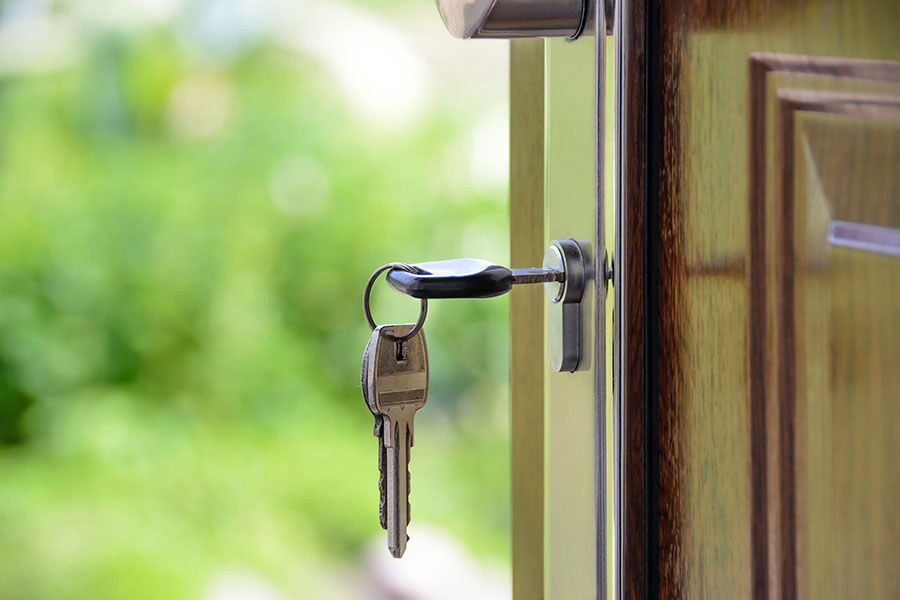Michael S. Simone, Esq.
Managing Attorney

Few home purchase joys compare to the relief of finally getting keys on closing day. After a marathon of financial hurdles, inspections, anxious waiting, and dense paperwork, you are finally at the finish line. I tried to explain to any client the purchasing process is an emotional roller coaster.
Walking into closings informed sets realistic expectations so buyers stay steadier through unpredictable dips in the process.
So what exactly unfolds behind the scenes, driving typical home closing timelines? What can buyers expect from offer to ownership?
Let us explore the realistic timeline for closing on a home.
While every home purchase follows the same general stages, how quickly you move from offer acceptance to closing day depends on how smoothly several essential milestones unfold.
After an offer is accepted, your lender gets busy processing your mortgage application and underwriting your loan. It takes most lenders about 2 to 4 weeks to fully underwrite and approve a mortgage from the time the completed application is submitted. Complex loans or incomplete applications can languish in underwriting for 30 days or more. Pro Tip: Get pre-qualified before even house hunting to streamline this step.
Having a real estate attorney already secured when your offer is accepted means we can consult on any concerns about your unique financials in relation to mortgage eligibility. We also review your initial application to ensure all necessary documentation is included upfront, avoiding delays waiting for missing paperwork.
The property appraisal – where an independent appraiser visits the home to verify its value matches the sale price – is crucial for securing financing. Appraisals typically take about 1 week once ordered, as long as there are no delays accessing the property. Unfortunately, low appraisals can necessitate price renegotiation and reset the closing timeline.
Home inspections identify flaws or safety issues in the property’s structure, systems, appliances, etc. Inspectors usually complete reports within 5-10 days. If issues arise, repairs, credits, or withdrawing from the contract could take weeks. For smoother sailing, buyers can schedule inspections for the 2-3 week window while financing and appraisal are underway.
In our experience, nearly 80% of home inspections uncover issues needing renegotiation. As your representative, we can negotiate effectively with sellers, keeping talks amicable while securing agreeable repair arrangements to keep the contract on track. However depending on the real estate market dictates the ultimately ability to negotiate.
The title company researches liens, deeds, restrictions, and other matters to verify ownership and confirm the seller can rightfully transfer clear title to the buyer. It generally takes about two weeks to thoroughly complete title work, longer if complications arise. Title issues could require legal action to resolve before closing progresses.
While real estate dreams envision closing within weeks, the average home purchase takes between 30 and 90 days from offer acceptance to close. Our experience suggests 50 days is typical in New Jersey when all goes smoothly.
Here’s a general overview:
Of course, this will flex based on the loan type, title issues, appraisal snags, inspection surprises, and more. Next, we will explore common culprits of closing delays.
While no one plans for hiccups, many real estate transactions face delays ranging from a few days to several months. Buyers should be mentally and financially prepared for some curveballs.
Here is what could plausibly push back your closing date:
If the appraisal comes under the purchase price, renegotiations stall progress. A low appraisal may require the buyer to pay more cash, the seller to lower the price, or the parties to withdraw. New appraisals also reset the clock.
Faulty systems, pest infestations, shoddy DIY renovations, etc., often surface, demanding repairs before closing. Haggling over corrections bogs things down. In extreme cases, buyers walk away, and sellers must relist.
During underwriting, lenders dissect income statements, bank balances, debts, and credit. Any hiccups can jeopardize approval or restart the application. Manual underwriting or appeals, if denied, also cause delays.
During the title search, ownership disputes, liens, easements, or unpaid taxes tied to a property could materialize. Resolving title issues varies case by case, often requiring legal action.
Personal difficulties like job loss, illnesses, family emergencies, travel, or cold feet can interrupt even the smoothest transactions.
Life happens – job changes, accidents, family matters. As your counsel, we insert contingency clauses allowing flexibility if setbacks strike while keeping communication flowing among all parties if adjustments become necessary.
While hiccups happen, buyers can employ a few practical speed-up strategies:
In hot markets with bidding wars, buyers tempted by “quick close” promises discover it is largely wishful thinking if a mortgage is required. Legal and procedural steps establish baseline timeframes. However, all cash buyers willing to skip inspections could close in under 30 days. The risks just need to be weighed carefully.
As closing day approaches, buyers should prepare certain items to provide at the closing appointment.
The role of a real estate attorney on your team from the start can ensure all bases are covered leading up to a smooth closing. We proactively resolve title issues, negotiate inspection repairs, and review documents to prevent delays. Lean on us so you can focus on the thrill of stepping into your new home.
Purchasing property remains one of life’s greatest rewards, although the road to closing day has its share of twists and turns. As your real estate attorneys, we are here to guide buyers across the finish line.
Ready to start the journey? Contact us today to map out your home-buying action plan.
The core values of our team distinguish our firm from all others. We know there are many choices in legal representation and we appreciate you considering our firm for your legal needs. Our firm has maintained great relationships with our clients with some lasting over twenty (20) years. Our satisfied clients demonstrate the dependable, trustworthy, honest and efficient representation that we provide in order to vigilantly protect and serve our clients’ legal needs.